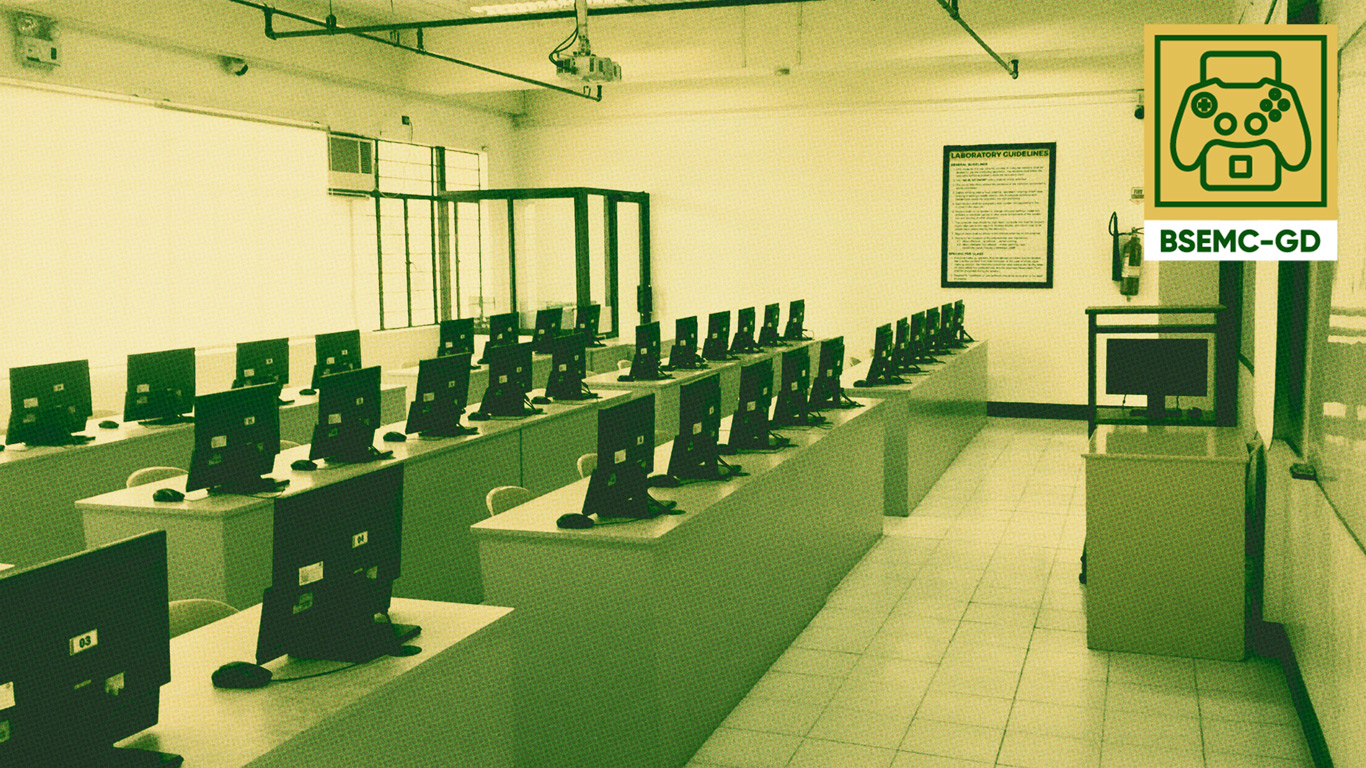
Bachelor of Science in
Entertainment and Multimedia Computing - Game Development
About the Program
This program is designed to equip students with specialized knowledge, competencies, and values for becoming game development professionals. It focuses on the design, development, and production of digital games and tools, as well as managing development projects for diverse applications.
Program Educational Objectives
Three to five years after graduation, the graduates are expected to:
- Establish game development or digital animation professionals with specialized knowledge, competencies, and values in designing, developing, and producing digital games and animations, and capable to manage fast paced development projects.
- Collaborate in an effective way with peers in diverse cultures with ethical leadership in community involvement and create a culture of high quality and globally competitive productions.
- Pursue professional development to keep abreast of the current trends and even extend their expertise in allied fields that applies core concepts to address the demand of the global market.
Student Outcomes
By the time of graduation, the students of the program shall have the ability to:
- Ability to apply knowledge of mathematics, physical sciences, computing sciences to the practice of being an entertainment and multimedia computing professional
- Specialized computing knowledge in each applicable field, and the ability to apply such knowledge to provide solutions to actual problems
- Knowledge of contemporary issues
- Ability to analyze project requirements and to design and implement project prototypes
- Ability to recognize, formulate, and solve computing problems
- Ability to design, build, improve and deploy products that meets client need within realistic constrains
- Ability to use the appropriate techniques, skills and modern computing tools necessary for the practice of being a professional game developer or animator
- Ability to work effectively in multi-disciplinary and multi-cultural teams
- Ability to effectively communicate orally and in writing using the English language
- Ability to understand and assess local and global impacts of computing on the society relevant to the professional computing practice and subscription to accepted industry standards
- Understanding of the effects and impact of entertainment and multimedia computing projects on nature and society, and of their social and ethical responsibilities
- Ability to create or use modified artifacts in consideration of intellectual property rights of the author
- Ability to engage in life-long learning and an acceptance of the need to keep current of the development in the specific field of specialization
- Ability to demonstrate original creative outputs
- An ability to demonstrate innovativeness in their outputs
- An ability to demonstrate client-centric service